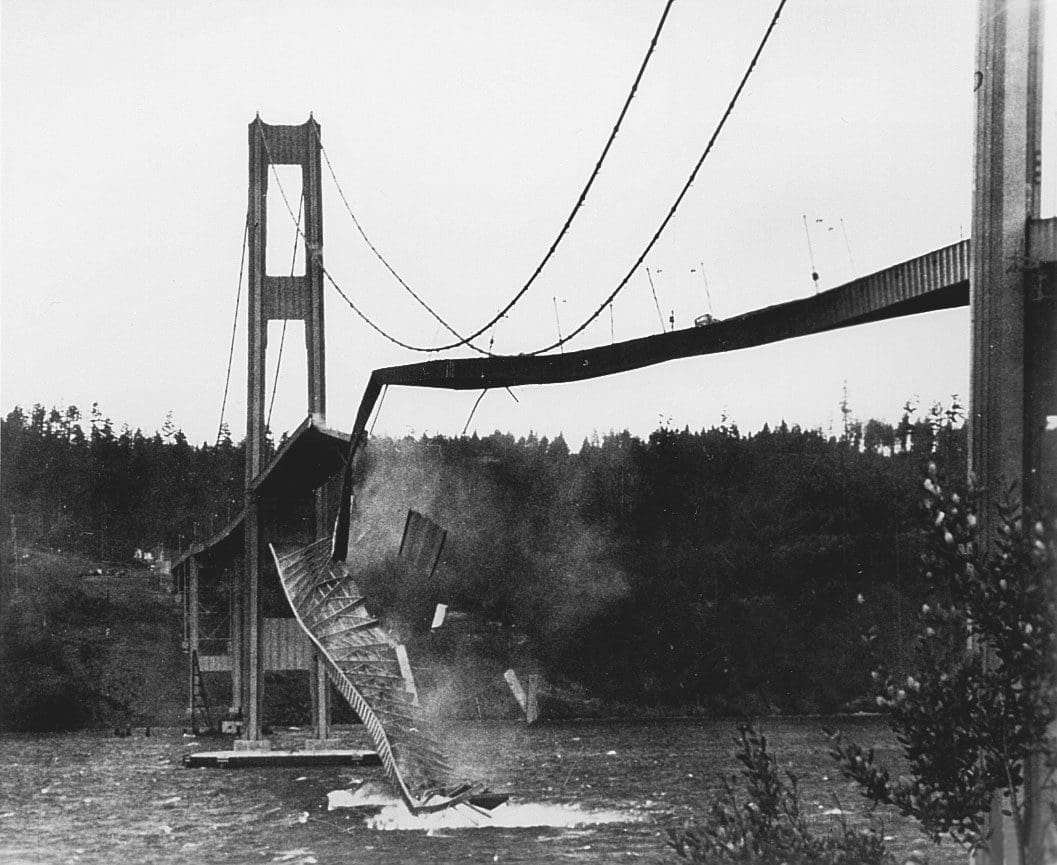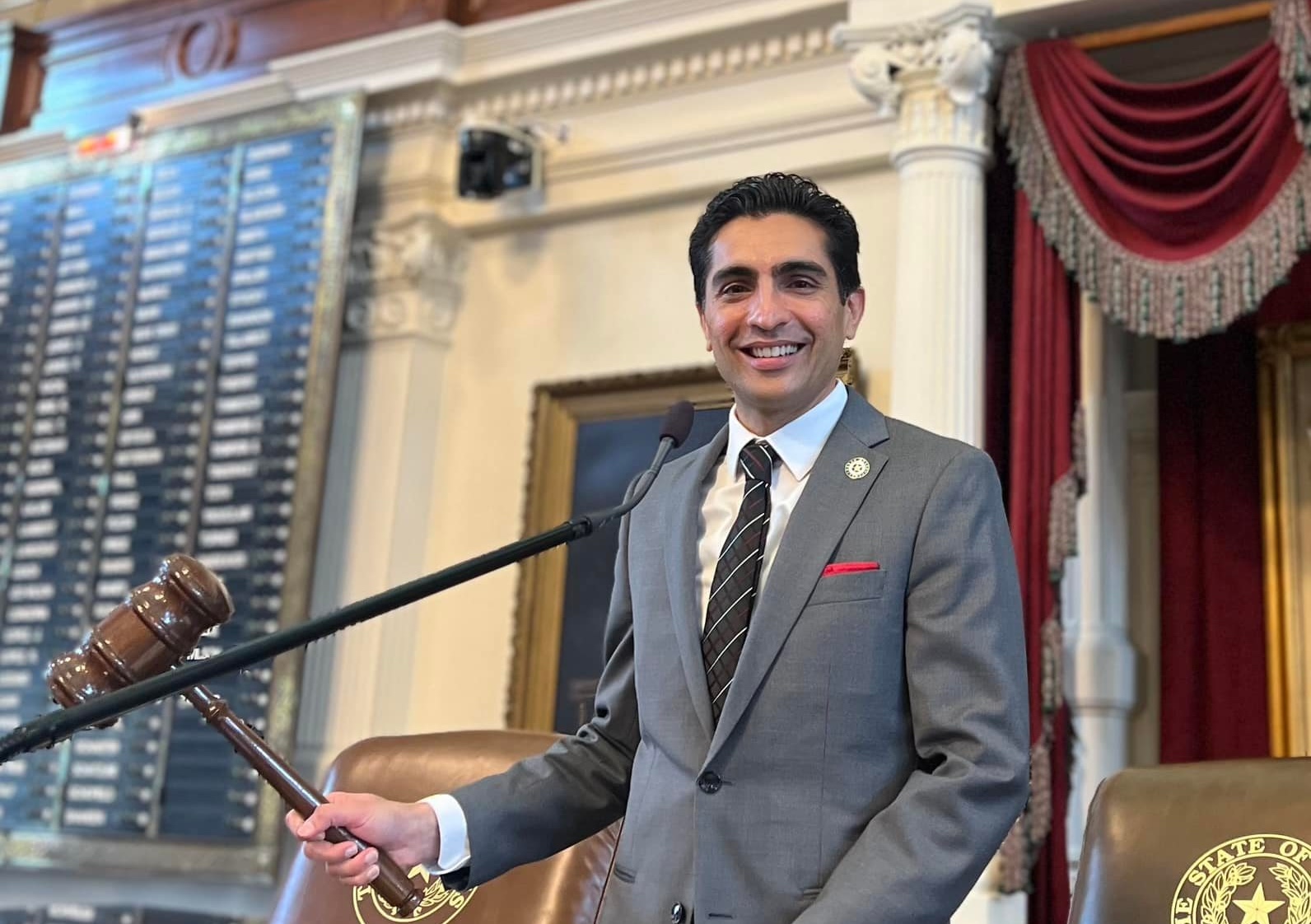Is the Texas Ethics Commission structured in a way that violates the Texas Constitution’s separation of powers guarantee? That issue came up this week in a Texas House committee and the TEC didn’t have a good answer.
At a House Elections Committee hearing on Tuesday, State Rep. Briscoe Cain (R–Deer Park) asked Ian Steusloff, general counsel for the TEC, what branch the agency is a part of, resulting in a rambling answer.
“Well, the commission has enforcement powers but we’re not a judicial entity. We’re an administrative, regulatory entity,” said Steusloff. “The authority of the Ethics Commission includes things like rulemaking as well as enforcement of the statutes that are under the commission’s authority to enforce.”
“So you have both legislative powers and police branch powers?,” Cain followed up.
“They’re generally executive in function although the commission was created by a constitutional amendment that is in the legislative branch,” added Steusloff.
That admission runs contrary to Article II of the Texas Constitution, which requires legislative, executive, and judicial functions be maintained in separate departments.
The Texas Ethics Commission was created by a constitutional amendment approved by voters in 1991. Initially, the commission was delegated the legislative functions of recommending salary increases and approving the legislative per diem. The commission is identified in Article III of the Texas Constitution, which deals with the legislative branch and is composed of members appointed by the House and Senate.
But in 1993, the legislature granted to the TEC executive-branch enforcement powers similar to those held by the Federal Elections Commission. However, that created a serious constitutional problem.
In Buckley v. Valeo, the most significant election law case in United States history, the United States Supreme Court struck down the provision of federal law that allowed the President pro tempore of the U.S. Senate and the Speaker of the U.S. House to directly appoint members of the FEC. The FEC’s members are now appointed by the President.
Cain asked Steusloff about the Buckley decision, but he refused to answer on the grounds the issue was the subject of ongoing litigation. That case, Empower Texans v. Texas Ethics Commission, is pending in a Travis County district court after being cleared to proceed by the Austin Court of Appeals.
Under further questioning, Steusloff confirmed the TEC has statutory jurisdiction over all 28 million Texans if they spend $100 or more in a reporting period on personal, independent political expenditures.
Steusloff also confirmed that Texans from every corner of the state who become targets of TEC investigations are required to travel to Austin in order to defend themselves. For the leader of a Republican women’s club in Texarkana or Brownsville, that can mean no due process at all.
In recent years, grassroots groups have criticized the commission for violating the First Amendment rights of Texans. Indeed, the TEC leadership themselves have acknowledged the chilling effect the agency’s process has on citizens who come before it.
Former TEC Chairman Paul Hobby conceded the problem in a 2013 interview:
You ought to see these people who leave our meetings in tears, these sweet, simple people who missed a box, missed a deadline. They get a letter [from the Ethics Commission] and they can’t sleep at night, they hire a lawyer they can’t afford. There’s no moral sanction here, they’re not convicted felons. But these people swear, they promise, “I’ll never participate in the process again.”
In the same interview, Hobby’s colleague, Jim Clancy, also a former TEC Chairman, admitted the agency tends to target those who attempt to comply with the state’s convoluted ethics laws.
There are a lot of very good, well-intentioned people trying to find out what to do in certain circumstances. One of the challenges we have is that those people who come to us, who try to disclose, are typically the ones who are fined. People who don’t report, who ignore the disclosure system, those folks are rarely involved. …[T]here’s a feeling that those people who try to comply are punished for doing so.
Despite acknowledging the gross constitutional violations the TEC’s processes create, Hobby and Clancy refused to do anything to scale back the agency’s power. Under the pair’s leadership, the TEC flagrantly refused to acknowledge binding court precedent and ignored constitutional limitations.
In an April 4, 2014 hearing, TEC Director of Enforcement John Moore said that constitutional defenses had no place at the commission, needed to be brought elsewhere, and “didn’t matter.” Recently, TEC Chairman Steve Wolens has echoed Moore, saying the TEC’s process “doesn’t matter” because respondents have a right to appeal. “It doesn’t really count at the end of the day,” Wolens said.
But it’s the TEC’s practice of ignoring court orders that has been its most flagrant abuse of power. In a February 13, 2015, TEC hearing, after being confronted with a binding opinion from the Austin Court of Appeals calling the TEC’s position on the law “an affront to the First Amendment,” Chairman Paul Hobby dismissed the court’s criticism:
You have to participate in due process in order to be entitled to it. You’ve got your objections and I know you want to have a hearing where we call constitutional balls and strikes. I’ve told you we don’t do that. … We’re not convened as a judicial body to call constitutional balls and strikes or read Third Court of Appeals cases.
The Texas Ethics Commission is unnecessary, unconstitutional, and a threat to the free speech of 28 million Texans. The Texas legislature should abolish it and ensure its necessary functions are handled by courts and elected officials that can be held accountable.




